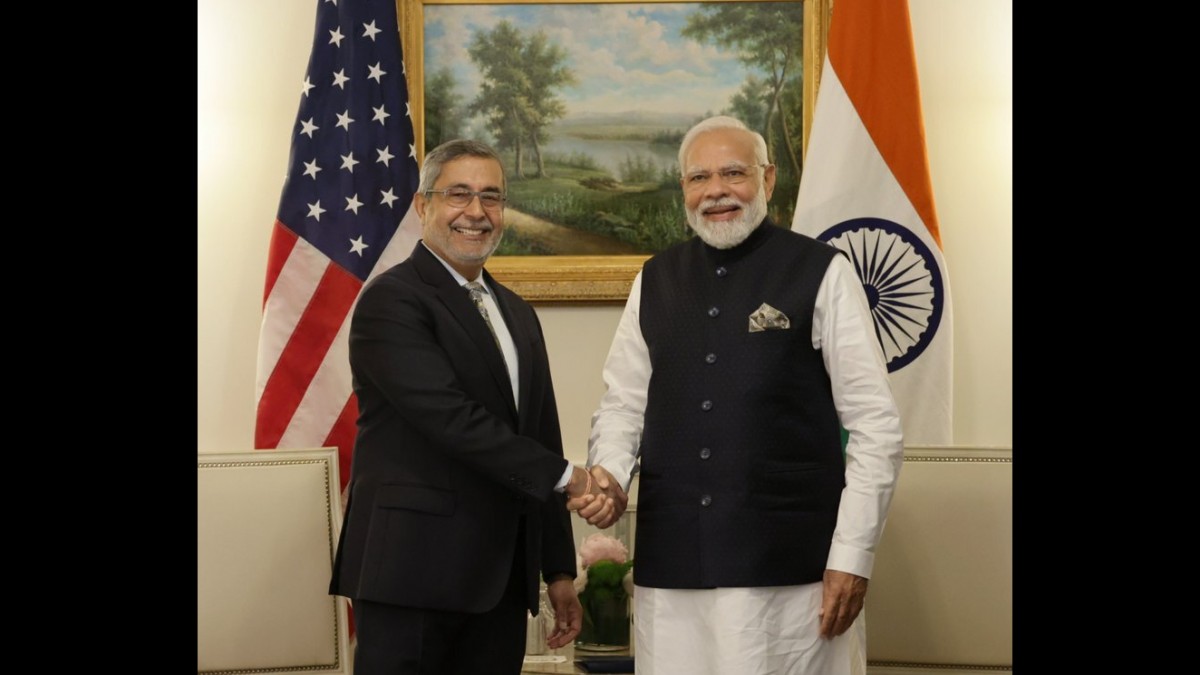Foxconn dumps $19.5 billion Vedanta chip plan in blow to India
Ben BlanchardJuly 10, 20238:32 PM EDTUpdated 2 months agoTAIPEI/BENGALURU, July 10 (Reuters) - Taiwan's Foxconn has withdrawn from a $19.5 billion semiconductor joint venture with Indian metals-to-oil conglomerate Vedanta, it said on Monday, in a setback to Prime Minister Narendra Modi's chipmaking plans for India.
The world's largest contract electronics maker signed a pact with Vedanta last year to set up semiconductor and display production plants in Modi's home state of Gujarat.
"Foxconn (2354.TW) has determined it will not move forward on the joint venture with Vedanta," a Foxconn statement said without elaborating on the reasons.
The company said it had worked with Vedanta for more than a year to bring "a great semiconductor idea to reality", but they had mutually decided to end the joint venture and it will remove its name from an entity that is now fully owned by Vedanta.
Vedanta said it is fully committed to its semiconductor project and had "lined up other partners to set up India’s first foundry". "Vedanta has redoubled its efforts" to fulfil Modi's vision, it added in a statement.
A source familiar with the matter said concerns about incentive approval delays by India's government had contributed to Foxconn's decision to pull out of the venture. New Delhi had also raised several questions on the cost estimates provided to request incentives from the government, the source added.
Modi has made chipmaking a top priority for India's economic strategy in pursuit of a "new era" in electronics manufacturing and Foxconn's move represents a blow to his ambitions of luring foreign investors to make chips locally for the first time.
“This deal falling through is definitely a setback for the ‘Make in India’ push,” said Neil Shah, Vice President of research at Counterpoint, adding that it also does not reflect well on Vedanta and "raises eyebrows and doubts for other companies".
Deputy IT minister Rajeev Chandrasekhar said Foxconn's decision had "no impact" on India's plans, adding that both companies were "valued investors" in the country.
He said it was not for the government to "get into why or how two private companies choose to partner or choose not to".
'IMPORTANT STEP'
Foxconn is best known for assembling iPhones and other Apple (AAPL.O)products but in recent years it has been expanding into chips to diversify its business.Most of the world's chip output is limited to a few countries, such as Taiwan, with India a late entrant. The Vedanta-Foxconn venture announced its chipmaking plans in Gujarat last September, with Modi calling the project "an important step" in boosting India's chipmaking ambitions.
But his plan had been slow to take off. Among other problems encountered by the Vedanta-Foxconn project were deadlocked talks to involve European chipmaker STMicroelectronics (STMPA.PA) as a tech partner, Reuters has previously reported.
While Vedanta-Foxconn managed to get STMicro on board for licensing technology, India's government had made clear it wanted the European company to have more "skin in the game", such as a stake in the partnership.
STMicro was not keen on that and the talks remained in limbo, a source has said.
The Indian government has said it remains confident of attracting investors for chipmaking. Micron last month said it will invest up to $825 million in a chip testing and packaging unit, not for manufacturing. With support from India's federal government and the state of Gujarat, the total investment will be $2.75 billion.
India, which expects its semiconductor market to be worth $63 billion by 2026, last year received three applications to set up plants under a $10 billion incentive scheme.
These were from the Vedanta-Foxconn joint venture, Singapore-based IGSS Ventures and global consortium ISMC, which counts Tower Semiconductor (TSEM.TA) as a tech partner.
The $3 billion ISMC project has stalled, too, owing to Tower being acquired by Intel, while another $3 billion plan by IGSS was also halted because it wanted to re-submit its application.
India has re-invited applications for the incentive scheme from companies.
Reporting by Munsif Vengattil in Bengaluru, Ben Blanchard in Taipei, Aditya Kalra in New Delhi; Additional reporting by Rishika Sadam; Editing by David Goodman and Alexander Smith
Our Standards: The Thomson Reuters Trust Principles.
Acquire Licensing Rights










